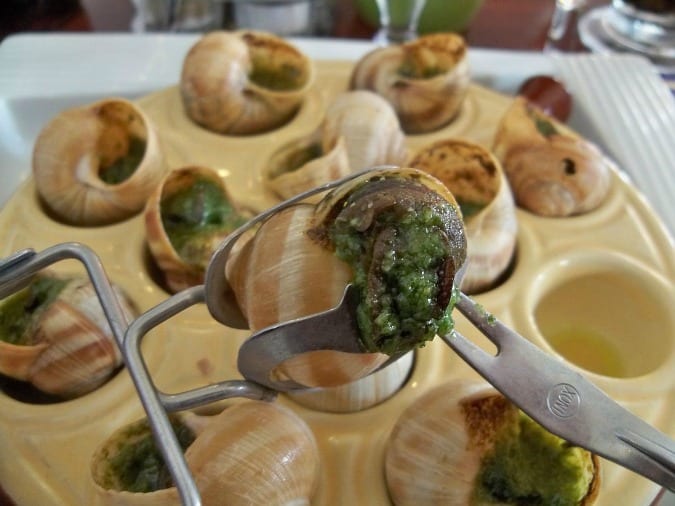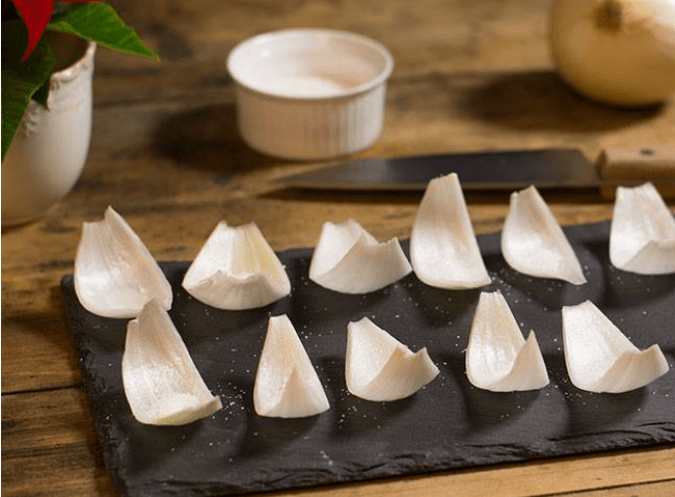A lot of ink—and blood—is spilled over the carp tradition around this time of year but there are some lesser-known Czech customs worth mentioning that may even surprise those of us who have lived here long enough to have heard them all.
Christmas Snails
While we know that the Czech Republic is a significant exporter of this delicacy, we didn’t know that snails were once an essential part of the Christmas feast.
The first mention of their consumption in the Czech lands dates to the 16th century when snails appeared on the table of Bohemian nobles the Rosenbergs; they later became a typical Christmas and Lenten dish that was also served at Easter.

Escargot experienced peak popularity during the Christmas celebrations of the First Republic when families went out for Christmas Eve snails or even made them at home. The landmark Czech cookbook Household Cookery by Magdalena Dobromila Rettigová features no less than four recipes for holiday snails.
The most popular preparation for Czech snails is Escargot Bourguignon (Snails a la Burgundy), braised in wine and served with melted garlic butter.
Snails are making a big comeback in Prague this year with a number of restaurants offering a Christmas snail menu; Restaurant Ada in the Hotel Hoffmeister has snail soup with duck ravioli, snail ragout with pancetta and chanterelles, gratinated snails with almonds and chestnuts and cheese, Escargot Bourguignon, and traditional Prague snails with parsley.
Foretelling the Future with Onions
Customs that forecast the future make up an important part of the Czech holiday celebration: a sliced apple can predict your fate, shapes formed by pouring molten lead into water foretell the year’s events, and even what you eat on the first day of the new year can determine your luck (skip anything with wings according to Czech superstition or yours will fly away).

We recently came across another surprising method of fortune telling—reading an onion, or cibulova pranostika (“onion sayings”). In this Moravian tradition, the outer layers of an onion are peeled away until you have 12 “boats” each representing a month of the year.
Sprinkle a little salt onto each onion portion on Christmas and leave overnight. In the morning, take note of those onion pieces where the salt is noticeably wet, rain can be expected during those months; plan your vacation, wedding or traveling dates for months where the salt remains dry.
A Dumpling Decider
Torn between two loves? This Christmastime Czech folk tradition may have a solution to your troubles. Historically, unmarried women who needed to decide between two suitors wrote names on slips of papers that were then boiled into dumplings during the holiday season. The lucky suitor who selected the dumpling filled with his name captured the single lady’s hand.

This article from the archives of Moravian a daily lists a number of old-fashioned Christmas traditions beyond the dumpling dual, including a couple we quite like: folk superstition says that you should return all borrowed things before the end of the new year. Another says a single woman who knocks on the henhouse with a slipper and hears a hen will remain unmarried in the new year!
Leading photo: www.dumporcelanu.cz; h/t www.restaurant-guide.cz













 Reading time: 2 minutes
Reading time: 2 minutes 























